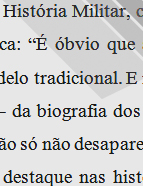

................................
Military historiography establishes itself as an important field within history and historiography, indelibly present in the discursive trajectories of many historians, whether through remote references to war or detailed examinations of military affairs. From the very beginnings of scientific historical scholarship, military themes have sought autonomous expression, although they have almost always been subordinated to political history. Generally, they are framed within countless narratives of heroes, battles, and military campaigns.
Thus, how can the definitions and conceptual boundaries of " Military History " be problematised, and, on another scientific level, what are the discursive evolutions in the " writing of Military History " , including " Military Historiography "? In what ways have the most influential national and international authors conceptualised these ideas and their close connection and interoperability?
Almost all military historiographical accounts have followed a trajectory of exalting or glorifying a (sometimes presumed) political-military past, closely tied to the ‘official’ objectives of regional, national, and imperial historical narratives. However, from another analytical perspective, ambiguity has consistently existed between the specialisation and generalisation of military matters within historiographical writing, which has gradually become one of the central strands of history. Historiographical research encompasses the processes through which history, as a discipline, seeks to expand its understanding of specific historical events. This necessarily involves a chronological-methodological connection between historical trends and the issues of historiographical inquiry over time. Thus, a perception, albeit understandably generic, can be acquired about h istoriography and its contributions to the evolution of history.
Thus, a synoptic overview is presented here of particular historiographical features , as well as the protagonists, objects, and methods of study within Portuguese m ilitary h istoriography. It should be noted that m ilitary h istory underwent a process of segregation, albeit in different ways in each country, and only in the 1970s–1980s would it experience its turning point in France and England, thanks to university initiatives and the cooperation of the Comissão Internacional de História Militar [International Commission of Military History] (CIHM). Thus, so-called traditional m ilitary h istoriography, which adheres to the definitions of "event," "time," and "subject," regarded history as the chronological succession of the great deeds of military heroes and leaders, and, in the overwhelming majority, of political leaders. This imperative of the événementiel political-military model stipulated, a priori , a distinct historiographical identity between g eneral h istory and m ilitary h istory, conceived as the specific study of war or military activity: " It is obvious that military history has remained and continued to be cultivated according to the traditional model. In the case of the English historical school, whose tradition of military history—from the biography of great leaders to battle history—has always enjoyed great prestige . N ot only has it not disappear ed from the historiographical landscape but it has even occupied a prominent place in the most important general histories, such as the New Cambridge History . However, this is the exception, because the rule is otherwise. With historians abandoning battle history, military history withdrew behind the barracks walls. Written by and for military personnel, and thus lacking broader historical reflection, military history underwent a process of marginalisation/self-marginalisation with a doubly negative effect on its development, marking the entire period of its crisis: firstly, it confined itself to the internal, technical, and specific problems of the military institution, avoiding any reflection on the relationship between the military and civil society or politics in a broader sense. Secondly, it severed all dialogue with history, thereby widening the gap between military history and general history—the former clinging to the traditional paradigm, the latter undergoing a full process of renewal" (Teixeira, A História Militar… [Military History…], 1991, p. 59).
This work is financed by national funds through FCT - Foundation for Science and Technology, I.P, in the scope of the projects UIDB/04311/2020 and UIDP/04311/2020.
